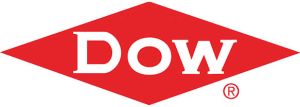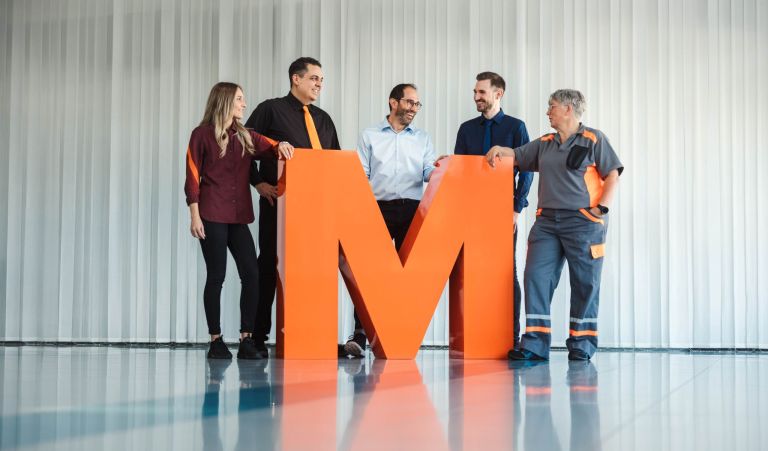Retaining experienced female leaders | Best Practice by DOW
Dow’s vision is to become the most innovative, customer-centric, sustainable and inclusive material science company in the world. To this effect, we have made a conscious and targeted effort over the last few years to hire, develop and retain female leaders from entry level to senior level. We have been very successful at hiring new employees 50-50 and in retaining experienced female leaders. One key remaining challenge is to maintain a healthy pipeline at the middle management level.
How did we achieve these great results in retaining senior female leaders at Dow? We understand what keeps female leaders’ ambitions and aspirations at the highest level: Continuous learning, career development opportunities and flexibility at work, which is possible at Dow thanks to a culture that praises results and outcomes and is not exclusively linked to face time in the office.
In the last few years, we have systematically implemented the practice of holding exit interviews. This practice has helped us to really understand why women at the middle management level are leaving the company. The majority of the answers were linked to the desire to advance faster into senior roles and to have the necessary flexibility at work to maintain a family life.

Commercial Director EMEAI, Dow Europe

While HR set up the new practice of holding exit interviews, the resulting insights have been shared with all leaders in the organization, including the Employee Resource Group leaders. This conversation took place during all meetings where talent development or I&D conversations took place. From this, it became clear that we had to change not only the commonly held perceptions of the needs of female leaders in the organization but also some of our practices in developing them and giving them the flexibility they need.
One of the key initiatives we implemented was a sponsorship program developed ad hoc for female leaders at Dow in collaboration with one of the top global business schools. The program, which lasted one week, was sponsored by all business leaders in the region and allowed 37 talented female leaders to kick off a leadership development journey that in most cases has accelerated their career progression in the last three years.
To implement more work flexibility, male leaders have played a key role. They have helped consciously shape a flexible working culture where performance and outcomes are praised.
Our journey in retaining female senior leaders is in continuous evolution and we are very proud that we have been able to increase the percentage of female leaders in EMEAI significantly compared to five years ago. While we are celebrating a great step forward in retaining female senior leaders, we are conscious that we have to continue to focus on nurturing a healthy pipeline of female leaders at the middle management level of the organization. Since we believe that ”where there is a will, there is a way,” we will tackle the remaining challenges in our I&D journey to become the most inclusive material science company in the world.
This Best Practice was first published in the Gender Intelligence Report 2019.

Discover how EY is leading a paradigm shift in the workplace by embracing flexible working arrangements. Explore their innovative strategies for getting clients on board with this transformative approach, fostering collaboration and driving business success.

NatWest champions working families through their comprehensive initiatives, such as Partner Leave, Phase-Back Program, and a Remote First approach. Uncover how they lead in creating a gender-balanced and inclusive environment that supports employees' specific needs.

Experience KPMG's commitment to empowering employees through flexibility and work-life integration. Discover their diverse initiatives challenging traditional norms and supporting new parents, fostering a thriving workplace for all.

Step into ABB's world and witness their groundbreaking gender-neutral parental leave program. Discover how ABB fosters a gender-balanced and inclusive environment, breaking boundaries and paving the way for working families to thrive.

Discover how Migros revolutionizes the workplace with its commitment to work-life integration. Explore their emphasis on part-time positions, hybrid work models, and leadership support, creating an environment where employees can flourish.

Implementing a holistic 4 pillar pay equity framework led to decreasing the pay gap to under 1% - and keeping it there.

Leaders insisting on pay equity and undertaking serious independent analyses builds trust and a culture of inclusion.

A customised internal salary modelling tool ensures fair salaries and strengthens employee confidence.

The full pay flexibility deal allows new parents to decide how they want to manage the transition back to work.

Looking beyond data helps Syngenta make pay equity a fundamental element of the company's culture rather than just a project to tick off.

Chances for promotions are equal for full-time and part-time employees thanks to a strong culture of flexible working.

#sharethecare shifts the narrative from ‘caregiving is strictly a woman’s responsibility’ to ‘caregiving is for both parents’. A bold ambition aiming to cultural change.